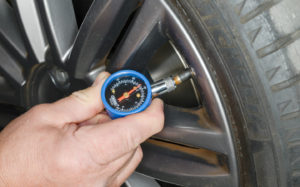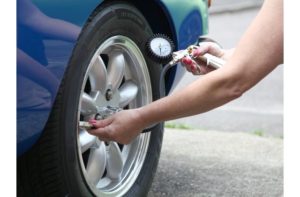If you’re in the market for new tires, you might feel overwhelmed by the options available for your vehicle. Frequently asked questions you might have could include: What type of car tire should you get? How should you decide which tries to purchase?
In short, you want to get car tires that fit your vehicle and the weather conditions and driving you do on a regular basis. In this quick guide, we’ll walk through diverse types of tires to help you decide what might be best for you.
What are the different types of tires?
When it comes to types of tires, there are different kinds on the market. For example, there are all-season tires, summer tires, winter tires, touring tires, and more.
It’s important to note: Which type of tire you need will depend on the type of vehicle you have as well as your typical driving conditions.
Let’s take a further look at some specific types of vehicles and the types of tires they might require.
Sedans, minivans, and CUVs
If you drive a sedan, minivan, or crossover utility vehicle, your tires are generally made for reliability and comfort. Some common types of tires for these classes of vehicles include:
All-season tires
You can get an all-season touring tire that maximizes comfort. All-season tires create smooth driving conditions on the highway and have good traction for all seasons, hence the name.
Touring tires
Another type of tire that can work for this class of vehicles is a touring tire. Touring tires help secure a smooth ride like all-season tires and have more performance-boosting benefits like responsive handling.
Touring tires tend to have increased speed ratings, which means the tires can endure higher speeds while still offering the driver security and control. In general, touring tires are geared towards performance.
Summer tires
If you live in a warmer climate or need performance tires for warmer weather, summer tires could be a good fit for you.
Summer tires are designed to work best in warm weather conditions and aren’t made for every season. They have a strong grip and responsive handling in various situations, such as dry or wet weather.
Performance tires
Though touring tires are geared more toward performance, they’re not to be confused with actual performance tires.
Performance tires typically have higher speed ratings than touring tires but are also designed to support you in different weather conditions, especially wet weather. The design and grooves in performance tires work by increasing the grip to help you stay safe in all types of weather conditions.

Trucks and SUVs
If you have a larger vehicle, such as a truck or SUV, you’d ordinarily want a tire that can withstand the terrain you’re driving on. Depending on your car usage, driving style, and location, you may consider one of the following:
Highway tires
Trucks and SUVs are heavier vehicles. Highway tires are designed to help create a smooth, even ride at increased speeds despite the vehicle’s mass.
Many highway tires have tread patterns that help support the wear and tear of the tires might face while avoiding unevenness. The tires are generally designed to support traction during all seasons.
All-terrain tires or mud-terrain tires
If you like to go off-roading or often drive on uneven surfaces, all-terrain tires can help you navigate those environments with comfort and ease.
All-terrain tires are made with complex tread patterns that support your vehicle while driving off-road, like in dirt, sand, or gravel. All-terrain tires provide security while dealing with various driving conditions while you drive off-road.
You might also consider mud-terrain tires, which are made for dealing with off-roading in mud or less solid terrain but not great for other driving conditions.
Rib tires
Rib tires are a good general option for vehicles that see a lot of highway use and increased mileage.
Rib tires can serve you well in a variety of weather conditions and have good traction on the road. The ribs in the tire treads are designed to support the vehicle and boost the car’s fuel efficiency.
Different types of specialty tires
Don’t forget these specialty tires from your car maintenance checklist:
Spare tires
A common specialty tire is a spare tire. Spare tires are designed to help you out in a bind if you have a flat tire. There are compact temporary spare tires, sometimes referred to as donut spares, which are limited in how much you can drive them and only at certain speeds. For example, you may be able to drive for up to 50 miles at 50 miles per hour on a spare tire. A spare from your manufacturer is often full-sized.
Winter tires
Winter tires can be common in certain areas of the country and are designed to deal with cold weather conditions.
Winter tires can handle weather conditions like snow and typically are either studded or non-studded. Studded winter tires can help with icy terrains; however, they may be illegal to drive on certain roads, so check your state’s department of transportation or department of motor vehicles.
Non-studded or stud-less winter tires can also handle ice and snow and are generally more popular because they may be used on more types of roads and environments.
The bottom line
Your car tires are more than just an accessory; they’re integral to the performance of your car. Finding the right tire for your car can boost your safety, comfort, and performance, so it’s crucial to be well prepared and well equipped.
Like your specialty tires, auto insurance can help keep you protected on the road. You could save money with Metromile and pay-per-mile auto insurance. Drivers can save 47% on average a year, according to a 2018 survey of new customers who saved with Metromile, and extra discounts of up to 40% are available for demonstrated safe driving during a Ride Along™ trial in select states.
You can see if pay-per-mile auto insurance is right for you when you download the Metromile app for free from your favorite app store.
courtesy of Metromile


